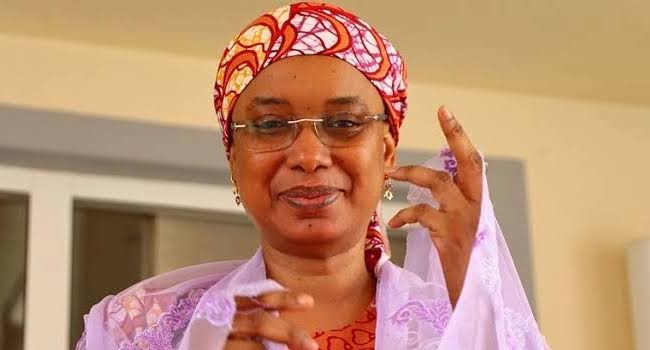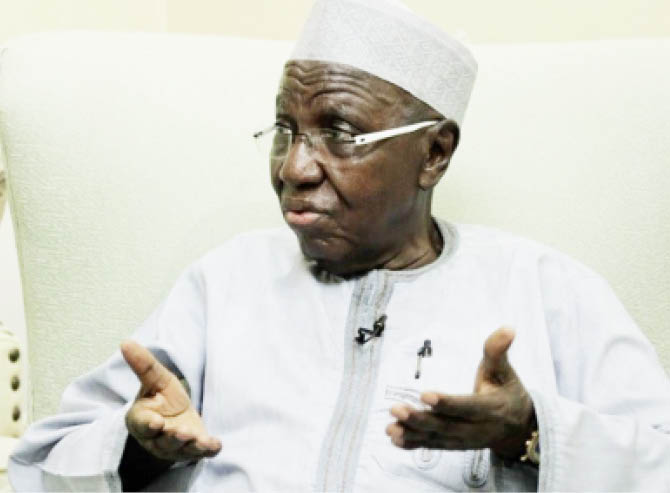ARTICLE AD
There is a book my friend frequently alludes to when we talk about Nigeria’s issues, and it is titled Planning Without Facts: Lessons in Resource Allocation from Nigeria’s Development by Wolfgang Stolper. The funny thing is that the book was published in 1966. That tells us that Nigeria’s penchant for chaos is not exactly novel. We have been a society that goes to battle without first counting the cost for virtually all our corporate existence. We are a country where the president makes a major policy pronouncement based on—not serious planning and preparation but—spirit possession.
Is it any surprise that one of the ministers that the president appointed also mirrors his attitude of planning without facts? Education Minister Tahir Mamman recently said that they would be proscribing candidates younger than 18 years from writing entrance examinations into the university. He said it very clearly, and we all heard that only students 18 and above would be allowed to write examinations conducted by these bodies: JAMB, WAEC, and NECO. Only for the Minister of State for Education, Yussuf Sununu, to jump out a week and half later to deny they would be imposing the age limit on candidates also taking WAEC and NECO. This looks like another “subsidy is gone” pronouncement. The “speak first, think later” inconsistency of the minister tells you how poorly he processed or even understood the decisions he announced.
One of the first observations you make about Mamman’s preoccupation with the age of undergraduates is that at no time since he began making his public pronouncements on this issue has he planked his decisions on facts. Not once! During his visit to a UTME centre in April, he was reportedly concerned that many of the candidates were between ages 15 and 16. He reportedly grumbled, “They are too young to understand what university education is all about.” I am genuinely curious, apart from being merely paternalistic, how did he objectively know that too many 15- and 16-year-olds were taking the examination, and age makes them ignorant of what university education means? Did he conclude they lack the necessary resilience by merely looking at their faces?
Again, during the JAMB 2024 policy meeting in July, Mamman declared a ban on candidates under 18 writing the UTME. Recall I wrote a piece on this arbitrariness, taking him up on it. He did not show either an appreciation for the circumstances that underwrite the issue or even acknowledge the logistical fallout of such a decision. Like a military leader, he keeps making all these funny pronouncements. Even worse is that he never gives you the facts informing his decisions. He is basing a major decision that will affect the lives of thousands of young people on his mere gut instincts. For all we know, Mamman’s fixation on this issue might be a matter of trying to solve a problem that does not even exist. He will only end up creating more problems.
Since he is not presenting any facts informing his decision, we might as well just ask him. So, what percentage of the candidates who write the UTME annually are under 18? Those figures should not be difficult for him to procure. All he needs to do is ask JAMB, and they will efficiently collate it from the biodata they require of the students every year. When we have that, we will get a clearer picture of the situation. After determining how many are under 18, then he should provide us with the figures for how many fail and how many repeat the university entrance exam multiple times to get admission into the university/course of their choice.
Since someone might write the exam at 16 and eventually be admitted to the university of their choice at 19 or 20, one cannot conclude that a 15-year-old is too young. Nothing says a 16-year-old writing an examination will make it; they might just be in rehearsal. Also, how many of these “underage” candidates pass the examination sufficiently to be admitted to the university? By university, we should distinguish between the public (and a few private) universities that have standards and the degree mills that will admit even a dog as long as it is ready to pay school fees. Let us momentarily set aside those degree millers (they are a different problem) and focus on the serious schools.
Now, on to the universities. From the figures of those who get admitted to the good schools, Mamman should give us the data on the percentage of those who drop out of school compared to those who eventually graduate. He need not survey every single university to determine the scope of the issue. He can select just two in each of the regions and ask the university to send him their figures.
But mere figures will not be enough at this stage. Here is where Mamman will need to do some groundwork because a student flunking out of school might have nothing to do with their age. It could be financial problems, family troubles, mental breakdowns, or just an unsupportive environment. When he has sorted through all these, then he should compare the figures of those so-called underage with those admitted from 18 and above to determine if there are significant differences between them. If there are, he can track precisely where the problem lies and how to solve it. If there are not many differences, then he can also look beyond his mere intuitions to make decisions.
It is possible that he will find that the number of students who go through the university at 16 and develop problems is infinitesimal and does not warrant a blanket ban. It could be a problem that requires a different type of solution. It is also possible he will find that the 6-3-3-4 model that presumes children will be admitted into primary school at age six is long outdated and due for revising. The 6-3-3-4 model did not envisage a world of endless teacher strikes and delays in the system. It was planned on the ideal that progress through one’s educational path would be largely unhindered.
Whichever path he tows, his decision would at least be informed. Even if he needs to make such a decision, he can set it for a future date. Banning those in SS3 will create all kinds of problems for parents and educators who are unprepared for the decision. He could have started with those who will go to primary one next year, insisting they start at age six. That consideration will give parents, educators, and regulators enough time to prepare. What he has done now consigns thousands of children to two years of languishing at home, their enthusiasm dwindling, and the law of diminishing returns eating into their skills.
Finally, two things need to be said about our education system. The first expresses my disappointment that none of the people in the various faculties of education throughout the country who must have researched these issues have thought it right to publicly contribute. Of what use is academic work that does not intervene in public policy?
Second is Mamman himself. As a man who has been a lawyer, professor, and administrator for many years, one expects the public policy decisions that he will make to reflect some sense and sensibility. Mamman was once a director-general of the Nigerian Law School and even the Vice Chancellor of Baze University, yet he bases a major decision on mere conjectures and no facts whatsoever. If Wolfgang Stolper were to return to Nigeria today, he would be dismayed to find that the Nigerian children who were born at the time he was researching for his book have become national administrators and they are still planning without facts!

 2 months ago
21
2 months ago
21 

